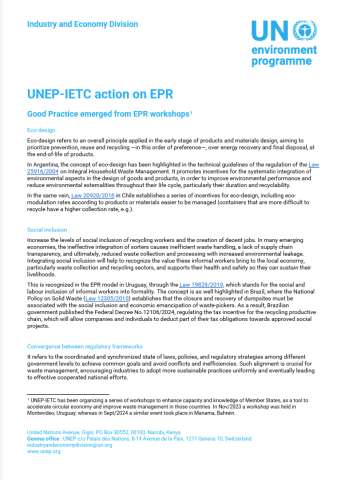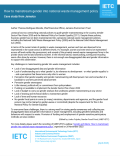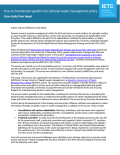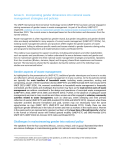
UNEP-IETC has been actively supporting countries in advancing Extended Producer Responsibility (EPR) systems through regional workshops and knowledge-sharing efforts. Key good practices emerging from these initiatives include promoting eco-design, as seen in Argentina and Chile, where regulations incentivize environmentally responsible product design to improve recyclability and reduce waste. Social inclusion is emphasized in Uruguay and Brazil through laws that integrate informal waste workers into formal systems, enhancing livelihoods and waste management efficiency. The importance of regulatory convergence is highlighted to ensure harmonized waste policies across government levels, improving coordination and outcomes. Countries like Jordan have demonstrated the value of collaborative stakeholder engagement, taking several years to build consensus around EPR rollout. Saudi Arabia further exemplifies this by aligning EPR development with its Vision 2030 goals through broad stakeholder participation. These experiences underscore the importance of inclusive, well-coordinated approaches for effective EPR implementation globally.



